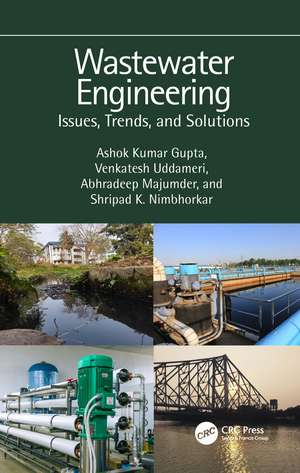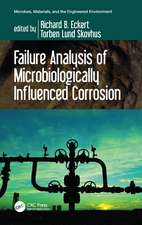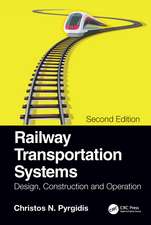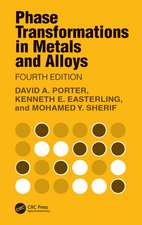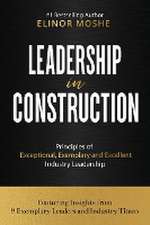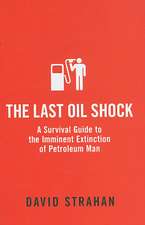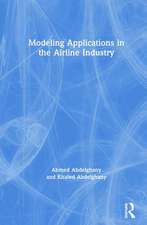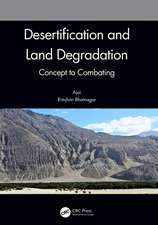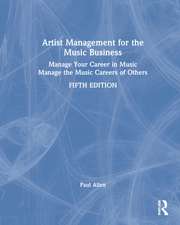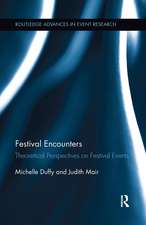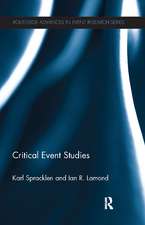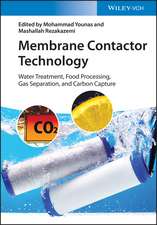Wastewater Engineering: Issues, Trends, and Solutions
Autor Ashok Kumar Gupta, Venkatesh Uddameri, Abhradeep Majumder, Shripad K. Nimbhorkaren Limba Engleză Hardback – 24 iul 2023
Features:
- Gives an overview of current wastewater treatment scenarios across the world
- Provides insights into emerging contaminants sources, procedure to sample, available methods for analyses, and possible treatments
- Reviews existing rules and regulations on wastewater engineering and standards for wastewater disposal or reuse
- Includes how to use wastewater as a resource in the context of circular economy
- Describes fundamentals of wastewater conveyance and treatment
Preț: 849.04 lei
Preț vechi: 1035.42 lei
-18% Nou
Puncte Express: 1274
Preț estimativ în valută:
162.46€ • 170.08$ • 134.43£
162.46€ • 170.08$ • 134.43£
Carte tipărită la comandă
Livrare economică 05-19 aprilie
Preluare comenzi: 021 569.72.76
Specificații
ISBN-13: 9781032399751
ISBN-10: 1032399759
Pagini: 348
Ilustrații: 15 Tables, black and white; 93 Line drawings, black and white; 1 Halftones, black and white; 94 Illustrations, black and white
Dimensiuni: 156 x 234 x 27 mm
Greutate: 0.8 kg
Ediția:1
Editura: CRC Press
Colecția CRC Press
ISBN-10: 1032399759
Pagini: 348
Ilustrații: 15 Tables, black and white; 93 Line drawings, black and white; 1 Halftones, black and white; 94 Illustrations, black and white
Dimensiuni: 156 x 234 x 27 mm
Greutate: 0.8 kg
Ediția:1
Editura: CRC Press
Colecția CRC Press
Public țintă
Academic and PostgraduateCuprins
1. Overview of Wastewater Management 1.1. Background 1.2. Need for Wastewater Management 1.3. Challenges in Wastewater Management 1.4. Current Wastewater Management Scenario 1.5. Approaches to Sustainable Wastewater Management 1.6. Overview of Processes Involved in a Typical Sewage Treatment Plant 1.7. Chapter Summary 1.8. Concluding Remarks 2. Wastewater: Sources, Characterization, and Analysis 2.1. Introduction 2.2. Components of Sewage 2.3. Characteristics of Sewage 2.4. Important Parameters of Wastewater and Their Analysis 2.5. Chapter Summary 2.6. Concluding Remarks 3. Legal Aspects of Municipal Wastewater Management and Standards 3.1. Introduction 3.2. Existing Legislative Mandates for Wastewater Management across the World 3.3. Wastewater Discharge Standards 3.4. Wastewater Reuse Standards 3.5. Sludge Disposal Regulations 3.6. Chapter Summary 3.7. Concluding Remarks 4. Wastewater Treatment System 4.1. Introduction 4.2. Types of Treatment Systems 4.3. Sewerage System 4.4. Chapter Summary 4.5. Concluding Remarks 5. Overview of Conventional Wastewater Treatment Processes: Primary Treatment 5.1. Introduction 5.2. Screening 5.3. Grit Removal 5.4. Sedimentation 5.5. Chapter Summary 5.6. Concluding Remarks 6. Overview of Conventional Wastewater Treatment Processes: Secondary Treatment 6.1. Introduction 6.2. Aerobic Treatment Process 6.3. Anaerobic Wastewater Treatment 6.4. Secondary Settling 6.5. Post-Aeration 6.6. Chapter Summary 6.7. Concluding Remarks 7. Overview of Conventional Wastewater Treatment Processes: Tertiary Treatment 7.1. Introduction 7.2. Chemical Precipitation 7.3. Filtration 7.4. Adsorption 7.5. Disinfection 7.6. Chapter Summary 7.7. Concluding Remarks 8. Sludge Management in Wastewater Treatment Plants 8.1. Introduction 8.2. Classification of Sludge and Their Properties 8.3. Quantification of Sludge Production 8.4. Conventional Procedures for the Management of Wastewater Treatment Plant Residues 8.5. Innovative Technologies for Sludge Management 8.6. Sludge Disposal 8.7. Chapter Summary 8.8. Concluding Remarks 9. Emerging Contaminants in the Aqueous Environment: Detection and Quantification, Ecological Impacts, and Legislations 9.1. Introduction 9.2. Sources and Pathways of Emerging Contaminants into Various Aqueous Environments 9.3. Analysis of Emerging Contaminants 9.4. Ecological Impacts of Emerging Contaminants 9.5. Guidelines and Standards Pertaining to Emerging Contaminants 9.6. Chapter Summary 9.7. Concluding Remarks 10. Emerging Contaminants in the Aqueous Environment: Treatment Technologies for Emerging Contaminants and Its Application 10.1. Introduction 10.2. Biological Processes 10.3. Advanced Oxidation Process 10.4. Adsorption and Membrane-Based Technologies 10.5. Hybrid Processes 10.6. Case Studies on the Treatment of Emerging Contaminants 10.7. Chapter Summary 10.8. Concluding Remarks 11. Sustainable Treatment Technologies for Achieving Circular Economy 11.1. Introduction 11.2. Life Cycle Assessment 11.3. Resource Recovery 11.4. Chapter Summary 11.5. Concluding Remarks
Notă biografică
Ashok Kumar Gupta earned his PhD in Environmental Science and Engineering from the Indian Institute of Technology Bombay, Mumbai, India. Currently, he is Professor (HAG) in the Environmental Engineering Division of the Civil Engineering Department and Ex-Head, School of Water Resources, Indian Institute of Technology Kharagpur, Kharagpur, India. He has over 25 years of teaching, research, and professional experience in various aspects, such as water treatment, wastewater treatment and reuse, treatment of emerging and geogenic pollutants, and others. He is credited with more than 140 publications in top-ranking international journals and his publications have appeared in more than 9900 citations with a h-index of 52. He has also published a comprehensive book on titles Fluoride in Drinking Water: Status, Issues, and Solutions by CRC press. Dr. Gupta is a renowned technical consultant in the arena of environmental engineering, having more than 50 completed, ongoing R&D, or consultancy projects of national and international importance to his credit. He has also carried out 30 short-term courses/workshops on water supply systems and wastewater management and reuse and others. Dr. Gupta has been awarded a Fellow of the Indian National Academy of Engineering (FNAE), a Fellow of the National Academy of Sciences (FNASc), and a Fellow of the West Bengal Academy of Science and Technology (WAST) in 2018, 2020, and 2021, respectively.
Venkatesh Uddameri earned his masters and doctoral degrees in civil engineering and environmental engineering, respectively, from the University of Maine, Orono, United States of America. Currently, he is Professor and Chair Professor in the Department of Civil and Environmental Engineering at Lamar University, Beaumont, Texas, United States of America. He has over 25 years of teaching, research, and professional experience in various aspects of water resources and environmental engineering. A significant part of his research is focused on alternative sources of water, including but not limited to the use of brackish groundwater resources and the reuse of wastewater. He is interested in the development of mathematical tools for the design and analysis of water and environmental systems. He is a fellow of the American Water Resources Association and currently serves as the Editor-in-Chief of the Journal of the American Water Resources Association. His research has been funded by a variety of federal, state, and local agencies, and he has received awards for both research and teaching innovations.
Abhradeep Majumder is a budding researcher in the field of water and wastewater treatment through biological and advanced oxidation processes. He earned his M.Tech in Civil Engineering with a specialization in Environmental Engineering from National Institute of Technology Agartala, Agartala, India. Currently, he is Senior Research Scholar from the School of Environmental Science and Engineering, Indian Institute of Technology Kharagpur, Kharagpur, India. His broad field of research is wastewater treatment. His research work is dedicated to the development of photocatalytic materials for degrading emerging organic contaminants present in wastewater and using mathematical modelling to describe their degradation process. He also has experience in the biological treatment of wastewater. His scientific contribution is marked by several publications on advanced oxidation processes, emerging contaminants, biological treatment, adsorption, and others in top-ranking international journals. He has 20 publications in top-ranking international journals and is credited with more than 800 citations with a h-index of 13.
Shripad K. Nimbhorkar earned his M.Tech in Environmental Science and Engineering from the Indian Institute of Technology Bombay, Mumbai, India. He has more than 40 years of experience in the field of industrial water and wastewater treatment. He has worked with renowned industrial wastewater treatment solution companies. He has been the Associate Vice President at Kirloskar Consultants, Bangalore, India, and Reva Enviro Systems Private Ltd., Nagpur, India, between 1988 and 1995. He was also the General Manager of Biosystems India Ltd., Ahmedabad, India. Furthermore, Mr. Nimbhorkar had also held the position of Lecturer at Maulana Azad College, Aurangabad, India, and been an Environmental Management System Auditor. His field of interest is wastewater management, wastewater reuse, and the use of renewable energy in wastewater treatment.
Venkatesh Uddameri earned his masters and doctoral degrees in civil engineering and environmental engineering, respectively, from the University of Maine, Orono, United States of America. Currently, he is Professor and Chair Professor in the Department of Civil and Environmental Engineering at Lamar University, Beaumont, Texas, United States of America. He has over 25 years of teaching, research, and professional experience in various aspects of water resources and environmental engineering. A significant part of his research is focused on alternative sources of water, including but not limited to the use of brackish groundwater resources and the reuse of wastewater. He is interested in the development of mathematical tools for the design and analysis of water and environmental systems. He is a fellow of the American Water Resources Association and currently serves as the Editor-in-Chief of the Journal of the American Water Resources Association. His research has been funded by a variety of federal, state, and local agencies, and he has received awards for both research and teaching innovations.
Abhradeep Majumder is a budding researcher in the field of water and wastewater treatment through biological and advanced oxidation processes. He earned his M.Tech in Civil Engineering with a specialization in Environmental Engineering from National Institute of Technology Agartala, Agartala, India. Currently, he is Senior Research Scholar from the School of Environmental Science and Engineering, Indian Institute of Technology Kharagpur, Kharagpur, India. His broad field of research is wastewater treatment. His research work is dedicated to the development of photocatalytic materials for degrading emerging organic contaminants present in wastewater and using mathematical modelling to describe their degradation process. He also has experience in the biological treatment of wastewater. His scientific contribution is marked by several publications on advanced oxidation processes, emerging contaminants, biological treatment, adsorption, and others in top-ranking international journals. He has 20 publications in top-ranking international journals and is credited with more than 800 citations with a h-index of 13.
Shripad K. Nimbhorkar earned his M.Tech in Environmental Science and Engineering from the Indian Institute of Technology Bombay, Mumbai, India. He has more than 40 years of experience in the field of industrial water and wastewater treatment. He has worked with renowned industrial wastewater treatment solution companies. He has been the Associate Vice President at Kirloskar Consultants, Bangalore, India, and Reva Enviro Systems Private Ltd., Nagpur, India, between 1988 and 1995. He was also the General Manager of Biosystems India Ltd., Ahmedabad, India. Furthermore, Mr. Nimbhorkar had also held the position of Lecturer at Maulana Azad College, Aurangabad, India, and been an Environmental Management System Auditor. His field of interest is wastewater management, wastewater reuse, and the use of renewable energy in wastewater treatment.
Descriere
This book explains current treatment scenarios of wastewater in different countries, its characteristics, and rules/regulations associated with the treatment and disposal/reuse of wastewater. It overviews different types of emerging contaminants, their properties, ecological impacts, detection/quantification, treatment, and circular economy.
